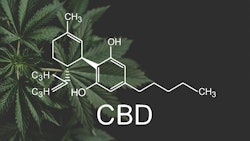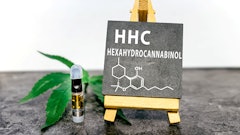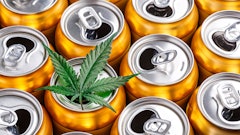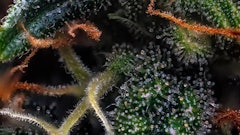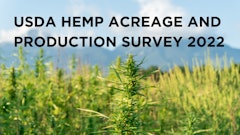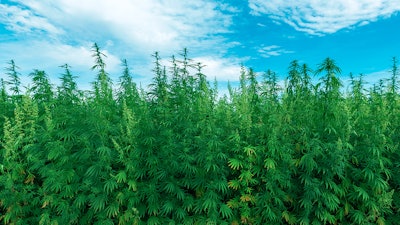
A cannabis industry trade association is asking U.S. lawmakers to federally prohibit hemp products intended for human or animal consumption that contain “detectable quantities of total THC” in forthcoming Farm Bill legislation.
U.S. Cannabis Council (USCC), which is dedicated to building a federally legal and equitable cannabis industry, proposed a new definition for intoxicating hemp-derived products in a letter (below) that the group’s executive director, Edward Conklin, sent the chairs and ranking members of the U.S. House and Senate agriculture committees on April 10.
Following is the additional definition for hemp being proposed by the USCC for inclusion in the Farm Bill.
Products in final form intended for human or animal consumption which are:
- Made or derived from hemp or hemp biproducts; and
- Contain detectable quantities of total THC and any other intoxicant that can be derived from hemp including other forms of THC; and
- Are intended to be consumed or absorbed inside the body by any means, including inhalation, ingestion, insertion, or topical application, shall be excluded from the current definition of hemp and considered marijuana as defined by 21 U.S.C 802(16).
“This proposal protects the allowances granted to farmers, allowing legitimate agricultural and industrial hemp producers the flexibility they need to navigate the changing plant characteristics when growing in the field, while taking away the loopholes that have created the current gray market environment for unregulated hemp-derived intoxicants,” Conklin wrote. “The recommendation makes clear that products containing intoxicants which are derived from the Cannabis sativa L. plant cannot be defined as ‘hemp.’”
This letter comes as leaders in the House and Senate agriculture committees—Sens. Debbie Stabenow, D-Mich., and John Boozman, R-Ark., and Reps. Glenn Thompson, R-Pa., and David Scott, D-Ga.—are tasked with reauthorizing the 2018 Farm Bill, which federally legalized industrial hemp, defined by having no more than 0.3% THC on a dry-weight basis, beyond state pilot programs. The lawmakers hope to pass a new Farm Bill before the end of 2024 after they were unable to do so last year.
RELATED: 2023 Farm Bill Passage Could Face 1-Year Delay, According to Key US Senator
While the industrial hemp provisions included in the 2018 Farm Bill legitimized the U.S. hemp industry through legalization and regulation, many industry stakeholders and state law enforcement officials have called on Congress to address loopholes in that law that have opened the door for intoxicating and unregulated products containing delta-8 and delta-9 THC, and other cannabinoids, to flood the U.S. marketplace.
Today, the U.S. hemp-derived cannabinoid market is “conservatively” estimated to be $28.4 billion, according to Whitney Economics’ 2023 National Cannabinoid Report.
Now, the USCC sees the Farm Bill’s reauthorization as a “key opportunity to tackle the national crisis caused by unregulated intoxicating hemp products” that has allowed this marketplace to proliferate across the country.
“Absent federal product safety oversight, hemp legalization has created a national consumer market of untested and unregulated intoxicating products,” Conklin wrote in the letter. “This has resulted in the widespread availability of unsafe consumer products, often produced using unregulated industrial-scale chemical processes that fail to meet the fundamental product safety standards that Americans have come to expect in consumer-packaged goods.”
The executive director explained that these products are shipped across states lines and available for purchase in gas stations and convenience stores, often without age-gating or labeling requirements, which can mislead consumers about the safety of their purchases, he said.
Moreover, Conklin said the lack of regulatory frameworks for hemp-derived products containing intoxicating and chemically synthesized compounds opens to the door to “bad actors,” with chemicals used in manufacturing these products posing a substantial health risk. He related the potential outcome to the 2019 vaping illness (EVALI) outbreak.
RELATED: What's in Your Vape Cartridge Now?
With this in mind, the USCC suggested in the letter that in order to protect consumers, lawmakers should require that intoxicating hemp products be regulated differently than nonintoxicants.
“Much like grape juice is regulated differently than wine, intoxicating cannabis products should be regulated like alcohol, while hemp ingredients that have safety profiles consistent with food and dietary supplements should be regulated as such,” Conklin wrote. “Both product types necessitate—and public health and safety require—a federal regulatory regime.”
Should lawmakers include USCC’s proposed definition, Conklin said the organization believes it would allow the U.S. Food and Drug Administration to step in and regulate nonintoxicating hemp consumer products under its existing authority.









